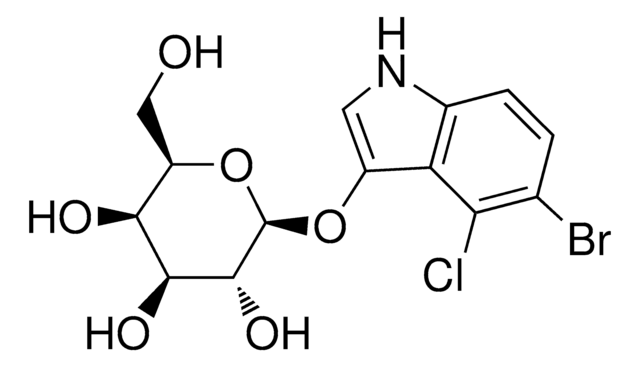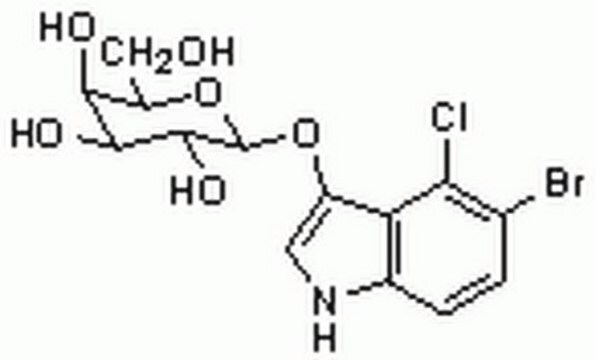03-3734
5-bromo-4-chloro-3-indolyl β-D-galactopyranoside
Synonyme(s) :
5-bromo-4-chloro-3-indolyl β-D-galactoside, BCIG, X-Gal
About This Item
Produits recommandés
Disponibilité
available only in Japan
Chaîne SMILES
OC[C@H]1O[C@@H](Oc2c[nH]c3ccc(Br)c(Cl)c23)[C@H](O)[C@@H](O)[C@H]1O
InChI
1S/C14H15BrClNO6/c15-5-1-2-6-9(10(5)16)7(3-17-6)22-14-13(21)12(20)11(19)8(4-18)23-14/h1-3,8,11-14,17-21H,4H2/t8-,11+,12+,13-,14-/m1/s1
Clé InChI
OPIFSICVWOWJMJ-AEOCFKNESA-N
Vous recherchez des produits similaires ? Visite Guide de comparaison des produits
Application
Adéquation
Code de la classe de stockage
11 - Combustible Solids
Classe de danger pour l'eau (WGK)
WGK 3
Point d'éclair (°F)
Not applicable
Point d'éclair (°C)
Not applicable
Faites votre choix parmi les versions les plus récentes :
Déjà en possession de ce produit ?
Retrouvez la documentation relative aux produits que vous avez récemment achetés dans la Bibliothèque de documents.
Notre équipe de scientifiques dispose d'une expérience dans tous les secteurs de la recherche, notamment en sciences de la vie, science des matériaux, synthèse chimique, chromatographie, analyse et dans de nombreux autres domaines..
Contacter notre Service technique




